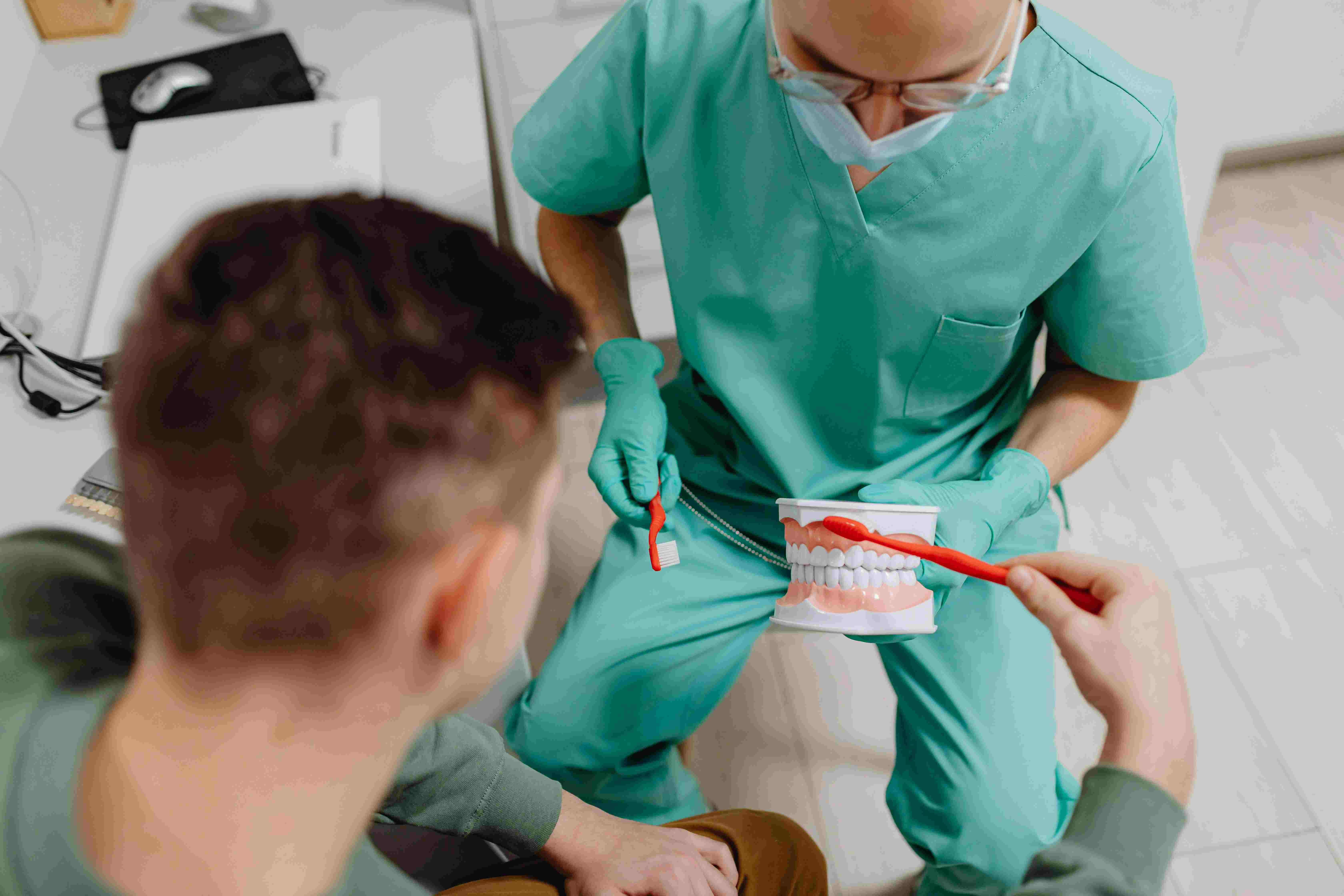Often bringing severe pain and stress, dental emergencies can strike at any time. In the UK, statistics show that one in every tenth individual has experienced some form of dental pain.
Proper preventive care can prevent many dental emergencies. Implementing a consistent oral hygiene routine and following expert advice can reduce the risk of unexpected dental issues.
This guide provides practical mouth care tips to help you maintain a healthy smile and avoid dental emergencies.
6 Oral Hygiene Tips to Prevent Dental Emergencies
Taking care of your teeth and gums is important for your health. Here are six mouth hygiene tips to help you prevent dental emergencies and maintain excellent oral health:
1. Maintain Your Brushing Schedule
One of the simplest yet most effective ways to prevent dental emergencies is to maintain a regular brushing schedule.
Brush your teeth at least two times a day with fluoride-based toothpaste. This helps remove plaque, a leading cause of tooth decay and gum disease. Make sure to brush your teeth for no less than two minutes, ensuring you clean all areas of each tooth.
2. Regular Dental Checkup
Regular visits to the dentist are crucial for maintaining oral health and preventing emergencies.
Book a dental appointment at least twice annually. These visits enable your dentist to detect and tackle possible problems before they escalate. Early detection of cavities, gum disease, or other dental problems, can save you from painful and costly emergencies.
During these checkups, your dentist can provide personalised oral hygiene tips and treatments to keep your teeth and gums healthy.
3. Eat Wisely
Your food intake has a major role in your oral health. Eating a balanced diet rich in fruits, vegetables, and whole grains can help maintain strong teeth and gums. Limit your intake of sugary and acidic foods and beverages, as they can erode tooth enamel and lead to decay.
Instead, opt for water, milk, and other tooth-friendly options. Chewing sugar-free gum after meals can also stimulate saliva production, which helps neutralise acids and wash away food particles.
4. Watch out for Chipped or Broken Tooth
A chipped or broken tooth can quickly turn into a dental emergency if not addressed promptly. Avoid chewing on hard objects like ice, popcorn kernels, or pens, which can cause teeth to chip or break.
If you experience a chipped or broken tooth, rinse your mouth with warm water, apply a cold compress to reduce swelling, and contact your dentist immediately.
5. Protect Your Teeth Against Threat
Physical activities and sports can pose a risk to your teeth. Utilising a mouth guard while participating in sports or other high-impact activities can safeguard your teeth against injury. Custom-made mouth guards, offered by your dentist, offer the best protection and comfort.
Avoid using your teeth as tools to open bottles or packages, which can cause cracks and fractures. These precautions can help you avoid dental emergencies and maintain oral health.
6. Use Reliable Mouthwash
Incorporating a reliable mouthwash into your oral hygiene routine can provide additional protection against dental issues.
Antibacterial mouthwashes help reduce plaque and prevent gum disease, while fluoride mouthwashes strengthen tooth enamel and prevent cavities. To improve your oral care regimen, use mouthwash as directed, typically once or twice a day at a separate time to brushing.
Mouthwash can reach areas that brushing and flossing might miss, providing a more comprehensive clean and helping you avoid dental emergencies.
In Short: Prioritise Oral Hygiene to Prevent Dental Issues
Preventing dental emergencies starts with a consistent and effective oral hygiene routine. By following these essential mouth care tips, you can keep your teeth and gums healthy and minimise the risk of unexpected dental issues.
Make sure to brush your teeth regularly, visit your dentist for routine checkups, eat a balanced diet, and protect your teeth from damage. Using mouthwash can also offer extra protection for your oral health.
However, if you experience a dental emergency, an emergency dentist in Birmingham, such as Emerdency, is always available to provide the necessary care and support.
